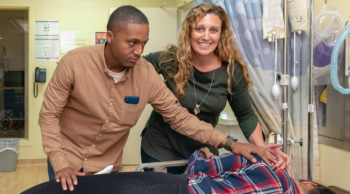(Carson, CA) - With the passing of Assembly Bill 829, California State University, Dominguez Hills (CSUDH) will become the first public university in Southern California to offer a Doctorate of Occupational Therapy (OTD). Passed by the California Legislature on Aug. 15 and signed by Governor Gavin Newsom on Aug. 30, AB 829 grants the California State University (CSU) system the authority to develop OTD programs on its campuses. Along with CSUDH, San Jose State University has also been approved by the CSU to create an OTD program. The two universities are currently the only CSU campuses to offer master's degrees in the booming field. “The Legislature appropriately recognized and ... Read More
The primary source of news and information about California State University, Dominguez Hills, its students, faculty, and staff.
